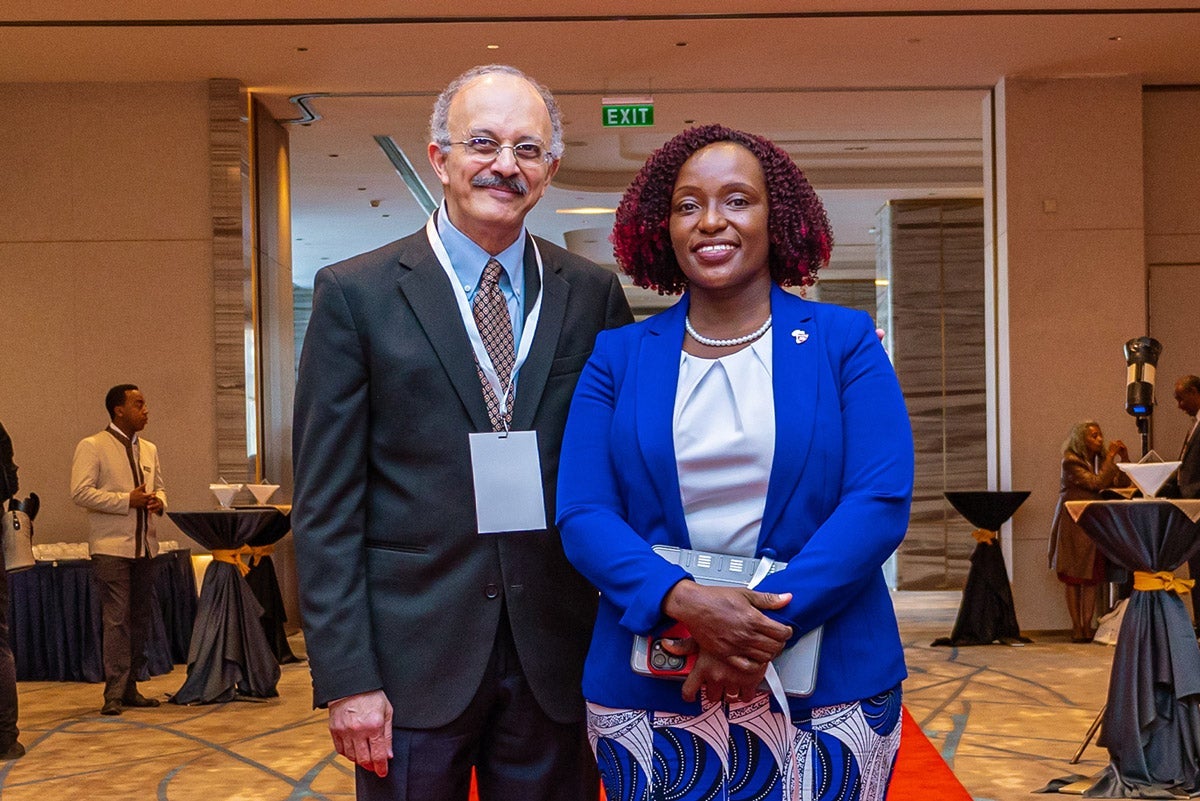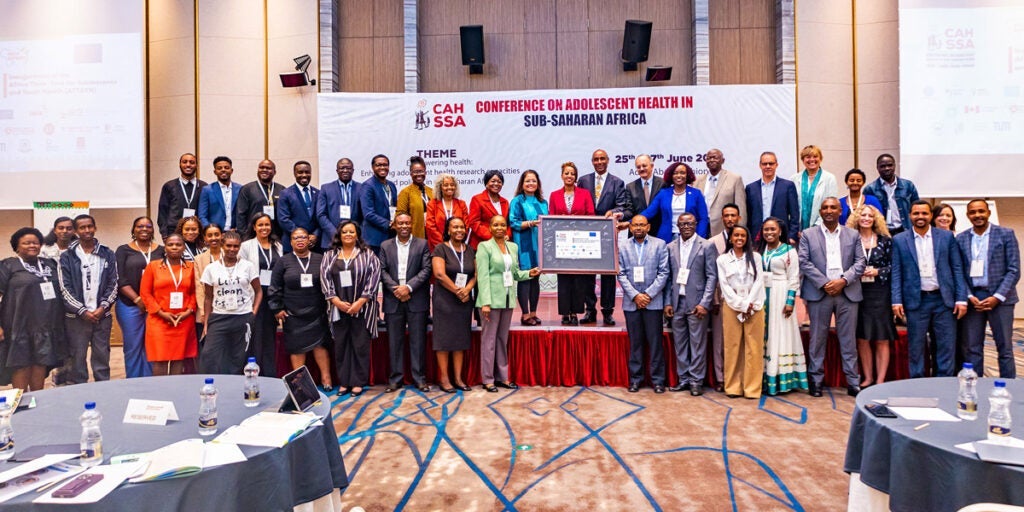Addressing a ‘critical shortage’ of African public health researchers

Harvard Chan School researchers are working with African partners to enhance adolescent health research opportunities and ultimately launch new doctoral programs at African universities.
September 12, 2024 – There’s a “critical shortage” of public health workers in Africa, according to the African Centres for Disease Control and Prevention (Africa CDC). Responding to gaps illuminated by the COVID-19 pandemic, the organization and others on the continent have called for significant growth and strengthening of Africa’s cadre of researchers and practitioners.
Researchers at Harvard Chan School and their partners in the Africa Research, Implementation Science, and Education (ARISE) Network are responding to this call. Marking its 10th anniversary this year, ARISE includes the Africa Academy for Public Health (AAPH) and universities in 10 African nations: Botswana, Burkina Faso, Ethiopia, Ghana, Nigeria, Rwanda, Senegal, South Africa, Tanzania, and Uganda.
ARISE researchers recently conducted an assessment of public health doctoral training in Africa and identified areas for growth—the first step toward creating a new doctoral program. For the assessment, they collaborated with the Future of Health and Economic Resiliency in Africa Commission, co-chaired by Muhammad Pate, minister of health and social welfare of Nigeria and an adjunct professor at Harvard Chan School, and Awa Coll-Seck, a former health minister of Senegal and Menschel Fellow at the School.
The assessment’s findings were published in May in Lancet Public Health, and offered six recommendations that can be achieved through equitable partnerships between universities, research centers, and national, regional, and global public health institutions.
Building on these recommendations, which included expanding competency-based education and standard accreditation, ARISE is developing new opportunities for doctoral education at its partner universities. Each institution will likely manage its own degree program, but there will be mechanisms for sharing expertise across the network. Through this initiative, ARISE will also seek to strengthen the links between universities and national research and public health institutes in ways that bolster the existing workforce and positively impact major health challenges in Africa.
Training programs have been part of ARISE since the beginning, and more than 350 African scientists have participated. A highlight has been a program known as WASHA Takwimu (“ignite data” in Swahili), focused on data science research. ARISE partners have also collaborated on research training programs in nutrition, infectious diseases, and HIV implementation science.
“We have an important opportunity to address the critical shortage of public health workers in Africa through collaborative efforts like this new doctoral training program,” says Wafaie Fawzi, who leads ARISE at the School and is Richard Saltonstall Professor of Population Sciences and professor of nutrition, epidemiology, and global health. “By expanding education and building expertise across our network of universities, research, and public health institutions, I believe we can empower the next generation of African researchers and practitioners to tackle health challenges in innovative ways.”
Promoting adolescent health

Adolescent health is one proposed focus area of the doctoral training program. Africa has the planet’s youngest and fastest growing population—its median age is 19—so meeting the health needs of adolescents is an urgent priority.
Over the past decade, ARISE has worked to advance adolescent health research and implementation science projects with the support of ministries of health and education in its network’s countries, and this summer it held the first Conference on Adolescent Health in sub-Saharan Africa in Addis Ababa, Ethiopia. In parallel, the network launched not only a new think tank focused on working with policymakers on translating adolescent health research into action, but also a youth advisory group that will provide input on research and training efforts.
“Our work on adolescent health aims to give young people a stronger voice and role in shaping policies that affect them,” says Mary Mwanyika- Sando, MPH ’13, chief executive officer of AAPH, a Harvard-affiliated organization registered in Tanzania and co-convenor of ARISE. “With commitment to building capacity on the ground and learning from one another, I am hopeful we can strengthen health systems and improve lives for many years to come.”